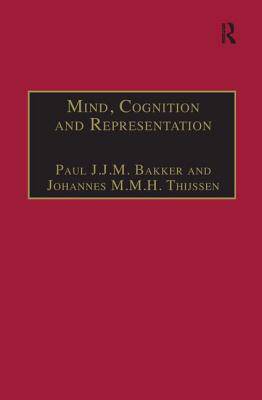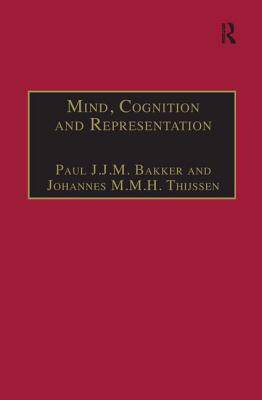
- Afhalen na 1 uur in een winkel met voorraad
- Gratis thuislevering in België vanaf € 30
- Ruim aanbod met 7 miljoen producten
- Afhalen na 1 uur in een winkel met voorraad
- Gratis thuislevering in België vanaf € 30
- Ruim aanbod met 7 miljoen producten
Zoeken
Mind, Cognition and Representation
The Tradition of Commentaries on Aristotle's de Anima
Paul J J M Bakker
€ 202,95
+ 405 punten
Uitvoering
Omschrijving
How can beliefs, which are immaterial, be about things? How can the body be the seat of thought? This book traces the historical roots of the cognitive sciences and examines pre-modern conceptualizations of the mind as presented and discussed in the tradition of commentaries on Aristotle's De anima from 1200 until 1650. It explores medieval and Renaissance views on questions which nowadays would be classified under the philosophy of mind, that is, questions regarding the identity and nature of the mind and its cognitive relation to the material world. In exploring the development of scholastic ideas, concepts, arguments, and theories in the tradition of commentaries on De anima, and their relation to modern philosophy, this book dissolves the traditional periodization into Middle Ages, Renaissance and early modern times. By placing key issues in their philosophico-historical context, not only is due attention paid to Aristotle's own views, but also to those of hitherto little-studied medieval and Renaissance commentators.
Specificaties
Betrokkenen
- Auteur(s):
- Uitgeverij:
Inhoud
- Aantal bladzijden:
- 272
- Taal:
- Engels
- Reeks:
Eigenschappen
- Productcode (EAN):
- 9780754630845
- Verschijningsdatum:
- 28/01/2008
- Uitvoering:
- Hardcover
- Formaat:
- Genaaid
- Afmetingen:
- 156 mm x 233 mm
- Gewicht:
- 520 g

Alleen bij Standaard Boekhandel
+ 405 punten op je klantenkaart van Standaard Boekhandel
Beoordelingen
We publiceren alleen reviews die voldoen aan de voorwaarden voor reviews. Bekijk onze voorwaarden voor reviews.











